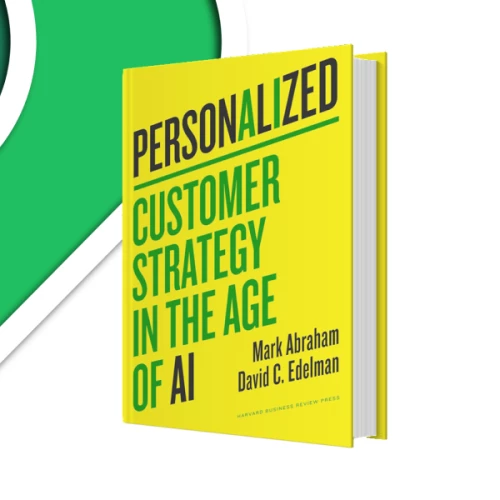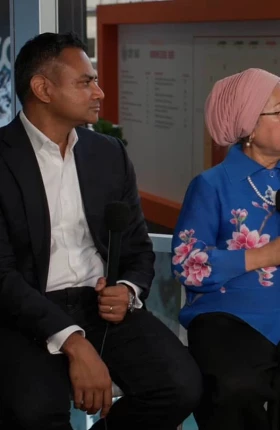製薬企業にとって重要性が高く、かつ、データやテクノロジーを適切に活用することで大きな効果が見込まれる「臨床開発」と「顧客エンゲージメント」の現状とペインポイント、今後考えるべき論点を見ていきます。
Featured Insights
おすすめコンテンツ

Article
2024年7月4日

Article
2023年9月29日
日本の将来を考えるにあたり、国民の日々の安心が守られ、必要な革新的医薬品が国民に遅滞なく届くよう、国民皆保険制度を維持しつつ、戦略産業の観点からもイノベーションを推進し、国力を高めることが重要です。医薬品に焦点を当て、日本における課題と議論を整理し、薬価制度、薬事制度といった具体的な取り組みについて考察します。

Article
2020年7月30日
さまざまな医療機関への経営改善支援の経験を基に、医療の質と生産性をともに高めるための考え方と実践的手法について解説します。経営層と現場が一体となった経営改善活動の推進に向け明日から取り組める打ち手が盛り込まれています。
Biopharma
Video
2025年1月21日
Striking the Right Balance in Biopharma
Leaders should look to leverage their investments in AI as they weigh innovation spending against a renewed focus on cost, says BCG’s Priya Chandran.

Article
2025年2月20日
Demand-centric growth is a proven, data-based methodology that enables brand marketers to identify the most promising sources of growth. Applying it in biopharma can create significant value.

Article
2025年2月18日
The industry’s ability to unlock the next wave of innovation and to continue its strong record of shareholder returns is at risk.

Article
2025年1月29日
Biopharma marketers embracing omnichannel, AI, personalization, and analytics are building real competitive advantage, increasing effectiveness, and reducing costs.

Article
2024年12月5日
The US biosimilars market is experiencing strong growth as regulations evolve and physician confidence in these products grows. But market patterns are changing.
Next-Generation Commercial Models

Article
2023年4月12日
The Team B approach involves assembling an independent cross-functional team to conduct rapid reviews of launch plans and market conditions for new pharmaceutical products.

Article
2024年12月5日
Biopharma companies can leverage new sources of patient data and technology to create more personalized patient experiences that have the potential to deliver better health outcomes.
Bold Advances in Health Care
Article
2025年3月19日
Bausch + Lomb CEO Brent Saunders talks about his leadership philosophy and how the company is excelling in such an innovation-focused industry.
Interview
2024年9月12日
グローバルなバイオ医薬品会社のデータ・テクノロジー最高責任者(CDTO)が、バリューチェーン全体にデジタル機能を導入し、患者の治療結果に注力することについて語ります。
Interview
2024年7月18日
Mike McDonnell explains how the global biotech is charting new paths to patients via Fit for Growth, its corporate transformation initiative.
Interview
2024年2月12日
Chief Digital and Technology Officer Lidia Fonseca explains how Pfizer is leveraging digital and data across the value chain and the biggest wins so far.
Book
Personalized: Customer Strategy in the Age of AI
Personalization is a $2 trillion opportunity. BCG's new book offers a playbook for unlocking digital transformations to capture your share of this personalization prize.
Health Care Payers, Providers, Systems, and Services

Article
2025年1月6日
In the health care industry, women have achieved gender parity at nearly all levels—except CEO. What can be done to break the glass ceiling?
Video
2025年1月21日
How M&A Can Foster Innovation in Health Care
To spur innovation and compete for products in the early ideation phase, companies should set aside funding for acquisitions, licensing, and partnerships, says Baxter's John Ranz.

Article
2025年1月30日
Payers that outsource their business processes can quickly advance their capabilities to elevate operational efficiency and competitive advantage while reducing costs.

While digital, data, and AI have extraordinary potential to revolutionize our global health care systems, they have yet to deliver a transformative impact. How can the public and private sectors accelerate progress?

Article
2023年10月2日
The latest technologies hold tremendous promise for health care, but they also pose significant challenges. Not all organizations are prepared to take advantage of the tech trends.
Medical Devices and Technology

Article
2025年1月7日
Leading companies are applying generative AI to make marketing processes faster and cheaper, while creating messages that are more personalized and effective.

Article
2024年7月3日
The number of ESG regulations continues to grow. Leading medtech companies are going beyond merely complying to gain competitive advantage.

Article
2024年2月22日
By developing products for a broader base of patients and markets, medtech companies can improve health outcomes, generate business advantages, and contribute to healthier societies overall.

Article
2024年3月22日
Most environmental waste generated by the health care sector comes from medtech products. For a sector focused on improving quality of life, reducing waste and greenhouse gases is imperative.
Global Health

Article
2024年11月18日
Extreme weather events such as cyclones and floods will drive increases in the incidence of sickness and death from malaria in Africa, according to a new study.

Article
2024年1月4日
BCG conducted a study of more than 70 organizations—including philanthropies, multilateral development banks, government agencies, nongovernmental organizations, private sector actors, and others—to understand how key stakeholders are approaching the climate-health challenge.
Video
2023年12月4日
Human Health Depends on Planetary Health
Too often is it taken for granted that the environment is a massive determinant of human well-being. Putting health at the center of our climate discussions is critical.

Article
2023年5月16日
The biopharma industry faces demands for more action to address health inequities. We provide a guide and tools to help companies integrate equity across the product lifecycle.













